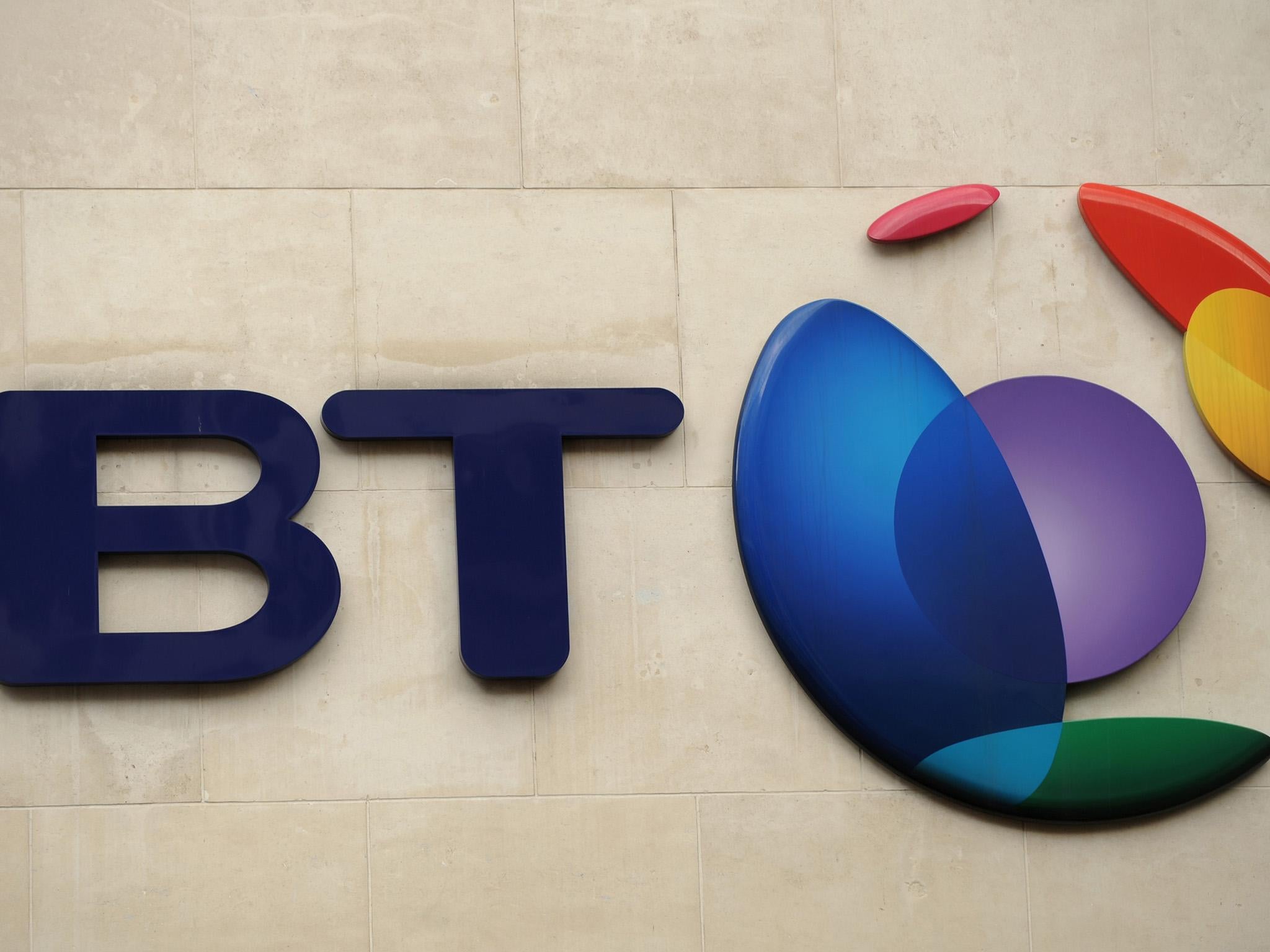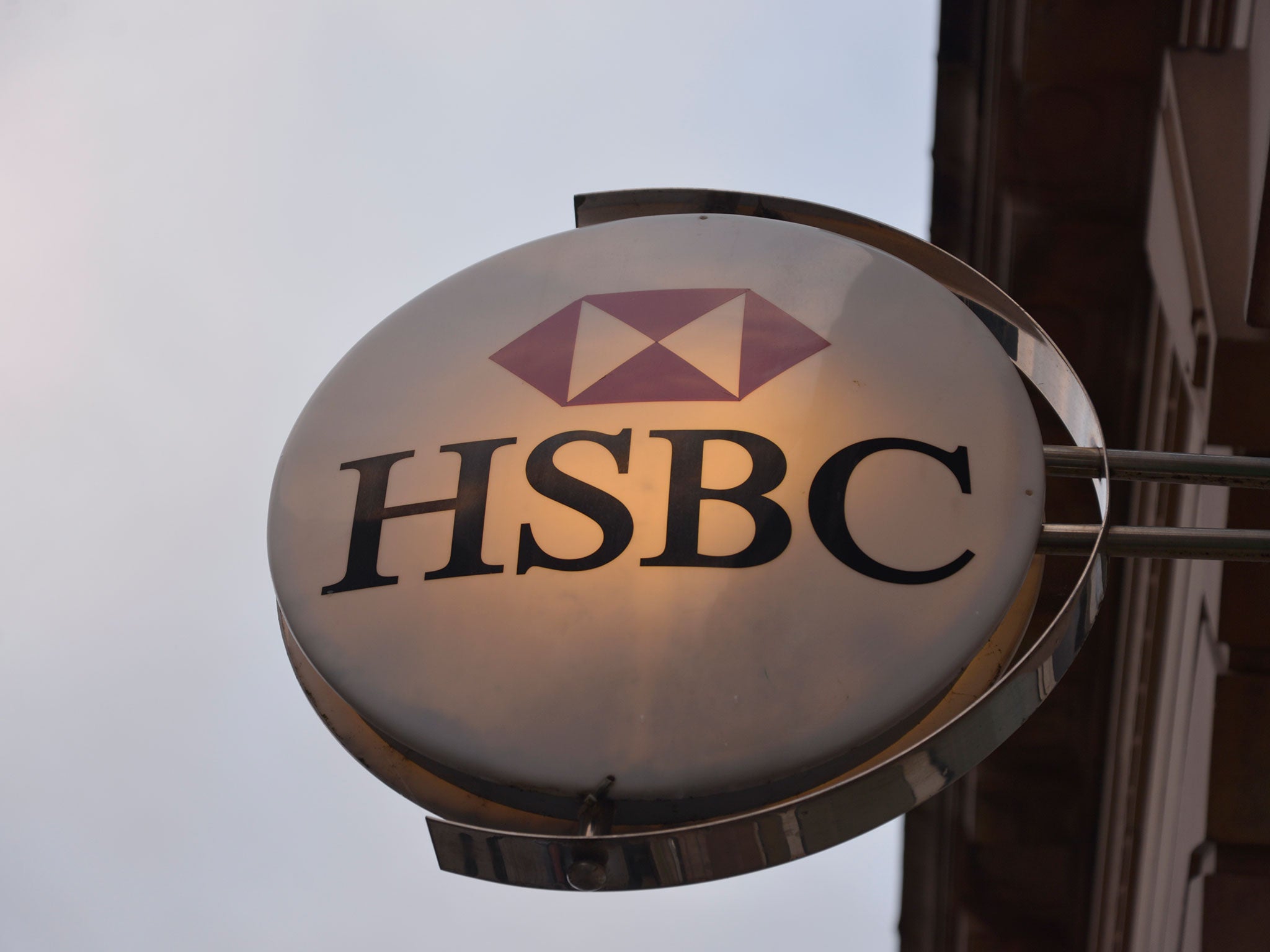BT, Brexit, Goldman Sachs: Business news in brief, Tuesday 22 November
Competition fears over mobile phone spectrum sale; ECB telks London banks not to rush moves to Europe; Michael Sherwood leaves investment banking giant

BT and EE face Ofcom cap on mobile spectrum
BT and its mobile unit EE could be blocked from bidding in the next spectrum auction meant to meet growing demand for mobile data. Communications regulator Ofcom has proposed plans for a 255 MHz or 45 per cent cap on the amount of immediately usable mobile spectrum that any operator can own, amid concerns that BT and EE may end up dominating the market and squeezing out competition. The cap would effectively block BT and EE from bidding for part of the spectrum that is currently used for high-speed 4G mobile broadband. Ofcom is due to sell 190 MHz of spectrum in an auction next year, comprised of a 2.3 GHz band – which is used by 4G phones – and a 3.4 GHz band – which is not yet used but expected to power future 5G devices.
An Ofcom consultation document explained that if BT and EE were to win all of the 2.3 GHz spectrum available in this auction, it would increase their share of immediately usable airwaves from 45 per cent to 49 per cent. “In other words, this one operator would have the almost same amount of spectrum as all the other operators put together. Our judgment is that this would create a significant risk to competition,” the document said. Competitors like Vodafone – which hold a smaller proportion of the mobile spectrum – will be able to take part in the next auction. Vodafone currently holds 28 per cent of the immediately usable UK mobile airwaves, while O2 holds 15 per cent and Three holds 12 per cent.
PA
Brexit banks told to relax: ECB won’t give first-mover advantage

Finance executives planning to shift operations out of the UK because of Brexit have been told by European Central Bank officials not to rush as there will be no first-mover advantage when it comes to gaining regulatory approvals, according to people briefed on the discussions. To avoid any potential bottlenecks in the process, policy-makers are considering allowing banks to use their UK-approved internal risk models for an extended period until euro-area regulators are able to hire more staff and perform their own assessments, said one of the people, who asked not to be identified because the deliberations are private. No formal talks have taken place and no decisions reached, the person said.
Banks are bracing for the worst – the loss of their right to sell services freely around the EU from London – and are set to start the process of moving operations to the eurozone within weeks of the Government triggering Brexit, which is scheduled to happen by the end of March. British Bankers’ Association head Anthony Browne said last month that bankers’ hands are “quivering over the relocate button”. The ECB’s Single Supervisory Mechanism, which began overseeing the currency bloc’s largest lenders two years ago, is preparing to deal with an influx of requests from global banks with their European headquarters in London, Sabine Lautenschlager, the vice-chair of that organisation’s supervisory board said on Tuesday.
Bloomberg
Goldman Sachs' Europe boss to retire

Michael Sherwood, co-head of Europe at Goldman Sachs is retiring, according to a memo sent out on Monday. One of the City’s most influential bankers, Mr Sherwood had recently made headlines for his role in the BHS scandal after Goldman helped facilitate the chain’s sale to Dominic Chappell for £1 shortly before its collapse. “I didn’t want to have anything out there before I left. On Philip Green, I wish we hadn’t been involved and I certainly don’t think we did anything wrong,” Mr Sherwood told the Financial Times. “It is one blip in a 30-year career and it really played no part in my decision."
Mr Sherwood, who spent 30 years at the investment bank and was often mooted as a potential successor to chief executive Lloyd Blankfein, will retire from his post at the end of the year but will continue to have a role as a senior director. The loss of one of the bank's top executives in Europe comes as Goldman, like many international rivals with a large presence in London, is grappling with the fallout from Britain's Brexit vote, which could restrict access to the European single market. Richard Gnodde, currently Mr Sherwood's co-chief, will become sole head of Goldman Sachs International. Mr Sherwood, often referred to by his nickname, Woody, began his career at Goldman in 1986, rising up the ranks as a fixed-income trader. He made partner – a prestigious role that can command a multimillion-dollar salary – in 1994 and head of the fixed income, currency and commodities division (FICC) in Europe in 2001. Mr Sherwood earned $21m (£16.8m) in 2015, regulatory filings showed.
Reuters
Financial Times in talks on acquisitions

The Financial Times is in talks to buy companies that strengthen its digital subscription business as the newspaper capitalises on greater financial support from its new owner, Japan’s Nikkei, FT chief executive John Ridding said. The publisher is hunting for companies that can “support and accelerate our growth in quality content and, in particular, are based on digital subscriptions,” Mr Ridding said in an interview in New York. The company is also interested in technology firms that bolster its data analytics, valuable for targeting readers with advertising and subscriber offers, he said. “We have a number of opportunities in the acquisition zone on the radar,” Mr Ridding said. The newspaper declined to comment on which companies it was talking with. “There are some irons in the fire.” Nikkei bought the London-based FT a year ago for $1.3bn (£1.04bn) after a bidding war with Germany’s Axel Springer. Prior to that, the financial newspaper was owned for 58 years by Pearson, which had focused resources on turning around its education business.
Bloomberg
Citi and JPMorgan top list of systemic banks

Citi has joined JPMorgan at the top of global regulators' list of systemically important banks, replacing HSBC and meaning the US bank will have to hold extra capital from 2019 to help preserve financial stability. The group of 20 economies (G20) agreed after the 2007-09 financial crisis that top banks, whose size and complexity mean a collapse could wreak havoc in markets, should hold extra capital, according to the level of risk they present. Members of the list of 30 lenders will also have to begin holding bonds from 2019 that can be written down to help replenish capital that is burned through in a crisis. In the annual update of rankings published on Monday by the G20's Financial Stability Board (FSB), Citi has replaced HSBC in the top “bucket” facing a 2.5 per cent capital surcharge on top of global minimum requirements. No lender joined or dropped out of the top 30 list this year.
Reuters
Apple to drop wireless routers
Apple has disbanded its division that develops wireless routers, another move to try to sharpen the company’s focus on consumer products that generate the bulk of its revenue, according to people familiar with the matter. Apple began shutting down the wireless router team over the past year, dispersing engineers to other product development groups, including the one handling the Apple TV, said the people, who asked not to be named because the decision has not been publicly announced. Apple hasn’t refreshed its routers since 2013 following years of frequent updates to match new standards from the wireless industry. The decision to disband the team indicates the company isn’t currently pushing forward with new versions of its routers. An Apple spokeswoman declined to comment on the company’s plans.
Bloomberg
GSK seeks US approval for triple lung drug
GlaxoSmithKline said on Monday it had filed its new three-in-one inhaled lung drug for US approval, putting it on track to reach the market ahead of rivals in 2017, assuming it wins a green light. Britain's biggest drugmaker is vying with competitors including AstraZeneca and Novartis to develop so-called “closed triple” therapies, offering a single inhaler for patients with chronic obstructive pulmonary disease. GSK is currently facing falling sales of its older dual therapy inhaler Advair and views the triple as a big opportunity. Outgoing chief executive Andrew Witty has said it could be an “absolute clincher” for its respiratory business.
Reuters
Subscribe to Independent Premium to bookmark this article
Want to bookmark your favourite articles and stories to read or reference later? Start your Independent Premium subscription today.


Join our commenting forum
Join thought-provoking conversations, follow other Independent readers and see their replies
Comments